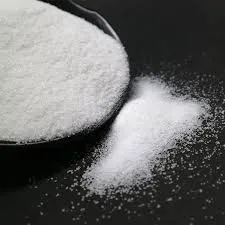Chemical Treatment for Chilled Water Systems
Chilled water systems are integral components in modern HVAC (heating, ventilation, and air conditioning) applications. They provide cooling in commercial buildings, industrial processes, and even residential complexes. However, to ensure optimal performance and longevity, these systems require proper chemical treatment. This article will explore the significance of chemical treatment in chilled water systems, the common challenges they face, and the strategies for effective maintenance.
Importance of Chemical Treatment
Chemical treatment is crucial for maintaining the efficiency and reliability of chilled water systems. The primary purposes of chemical treatment include
1. Corrosion Control The presence of water, metals, and dissolved oxygen in chilled water systems creates a conducive environment for corrosion. Corrosive elements can significantly diminish the lifespan of pipes, valves, and heat exchangers. Chemical additives, such as corrosion inhibitors, help to form a protective oxide layer on metal surfaces, reducing the rate of deterioration.
2. Scale Prevention Mineral deposits, particularly calcium and magnesium, can precipitate and form scale on the internal surfaces of cooling equipment. Scale buildup hinders heat transfer efficiency and can lead to equipment failure. Scale inhibitors are chemical agents used to prevent the formation of scale, ensuring that the system operates efficiently.
3. Biological Control Cooling systems can become breeding grounds for bacteria, algae, and other microorganisms, which can cause biofouling. This can lead to decreased efficiency, foul odors, and potential health risks. Biocides and algicides are employed in chemical treatment programs to mitigate microbial growth and maintain hygienic conditions within the system.
4. pH Balance Maintaining balanced pH levels is essential for the efficacy of corrosion inhibitors and other chemicals. An imbalanced pH can accelerate corrosion and reduce the effectiveness of scale prevention measures. Regular monitoring and adjustment of pH levels are critical components of a comprehensive chemical treatment plan.
Common Challenges in Chilled Water Systems
Chilled water systems face several challenges that necessitate routine chemical treatment. These challenges include
- Fluctuating Water Quality The quality of water in chilled systems can vary due to factors such as changes in source water, contamination, and seasonal variations. Fluctuating water quality can influence pH levels, corrosion rates, and the likelihood of scale formation.
chemical treatment for chilled water system

- System Design and Configuration The layout of a chilled water system can impact water flow and temperature distribution
. Poorly designed systems are more prone to areas with stagnant water, which can exacerbate issues related to microbial growth and scale formation.- Operational Variability Chilled water systems are often subject to intermittent operation, which can lead to temperature fluctuations and inconsistent water chemistry. In such cases, maintaining effective chemical treatment becomes even more crucial.
Strategies for Effective Chemical Treatment
To successfully implement a chemical treatment program for chilled water systems, consider the following strategies
1. Regular Monitoring and Testing Conduct routine water quality testing to monitor pH, conductivity, and the concentration of chemicals. This allows for timely adjustments to treatment protocols and ensures optimal system performance.
2. Customizable Treatment Programs Every chilled water system is unique, with specific materials, operational conditions, and environmental factors. Customizing chemical treatment programs based on these factors will enhance their effectiveness. Collaborate with water treatment specialists to develop tailored solutions.
3. Preventive Maintenance Implement a preventive maintenance routine that includes regular inspection, cleaning of cooling coils, and replacement of components as necessary. This proactive approach minimizes potential issues and prolongs the service life of the system.
4. Employee Training Ensure that personnel involved in the operation and maintenance of chilled water systems are adequately trained in chemical treatment protocols. Awareness of the importance of chemical treatments and best practices can help prevent negligence and promote responsibility.
5. Environmental Compliance Select chemicals that meet environmental regulations and are safe for use. Many manufacturers are now producing biodegradable and less harmful alternatives, offering effective treatment without compromising safety.
Conclusion
Chemical treatment is essential for the proper functioning and longevity of chilled water systems. By addressing challenges such as corrosion, scale formation, and microbial growth, and by implementing effective monitoring and treatment strategies, facility managers can maintain system efficiency, reduce energy consumption, and extend equipment lifespan. A well-managed chemical treatment program not only protects the investment in infrastructure but also contributes to a sustainable and environmentally responsible approach to cooling system management.

